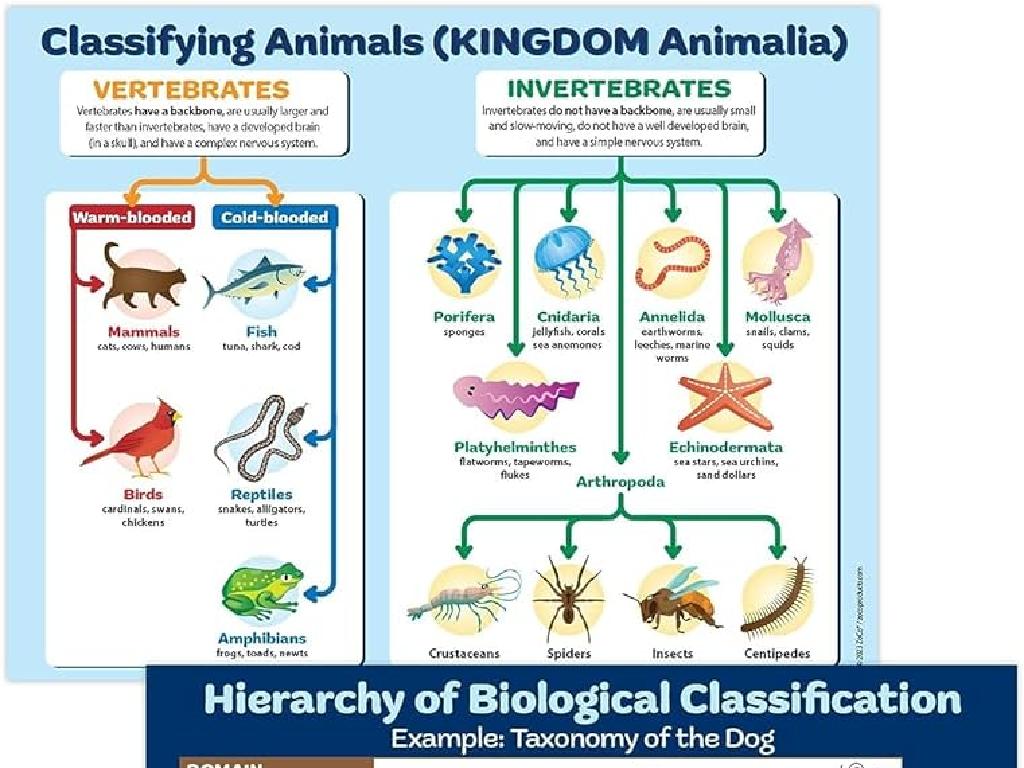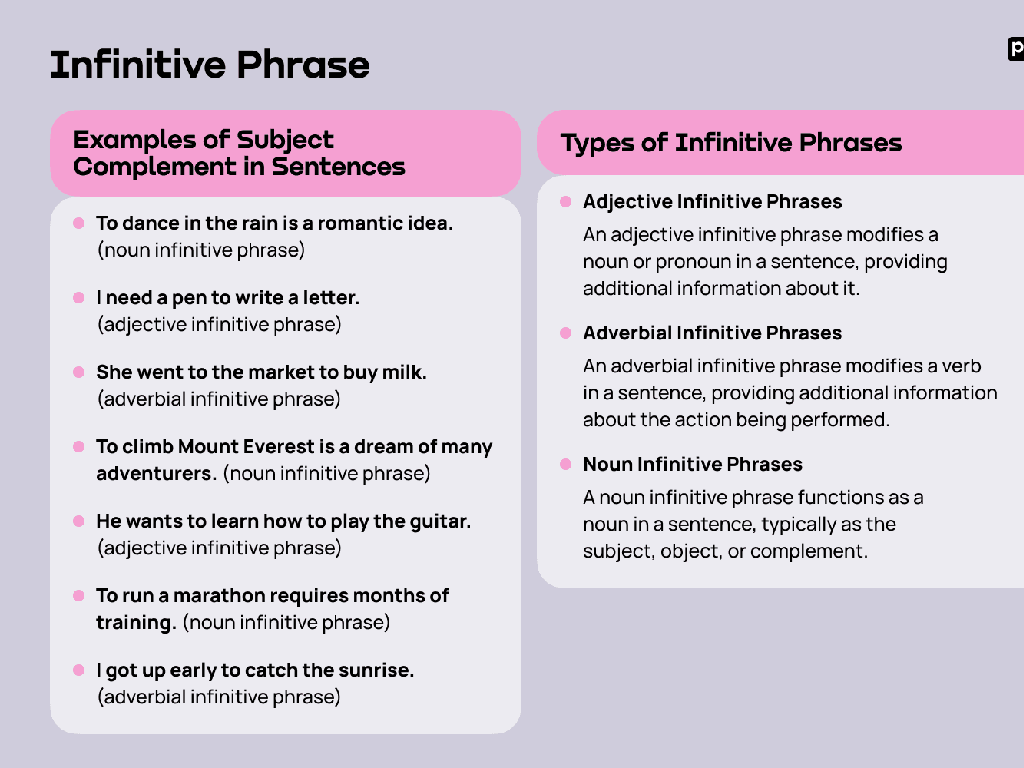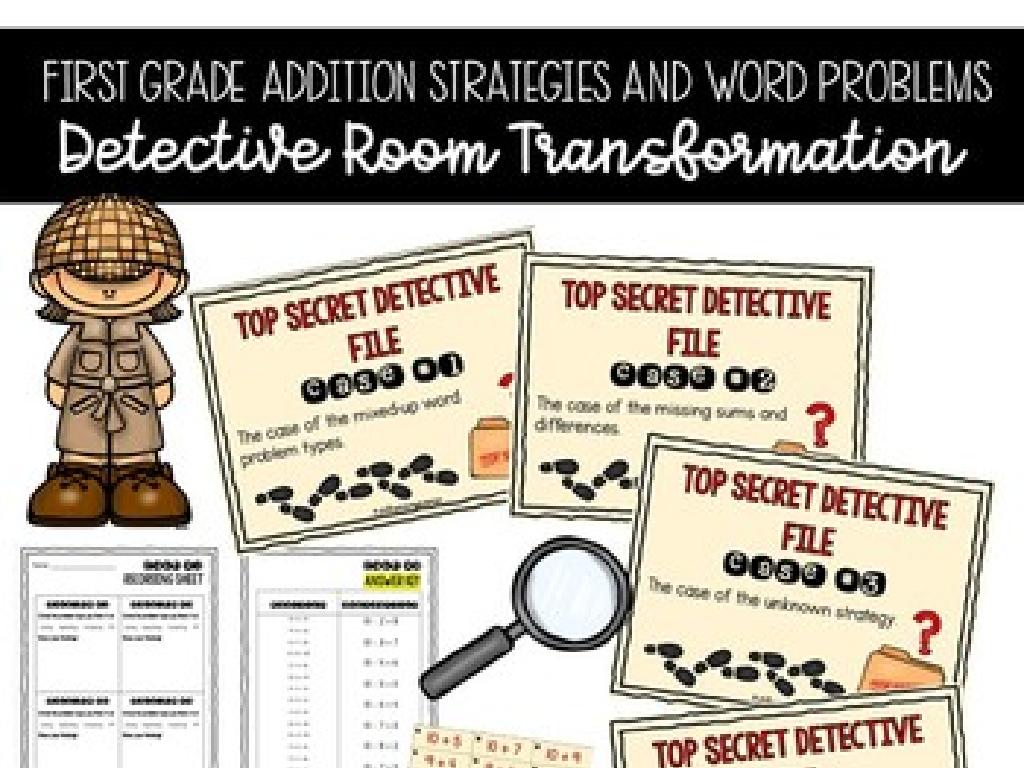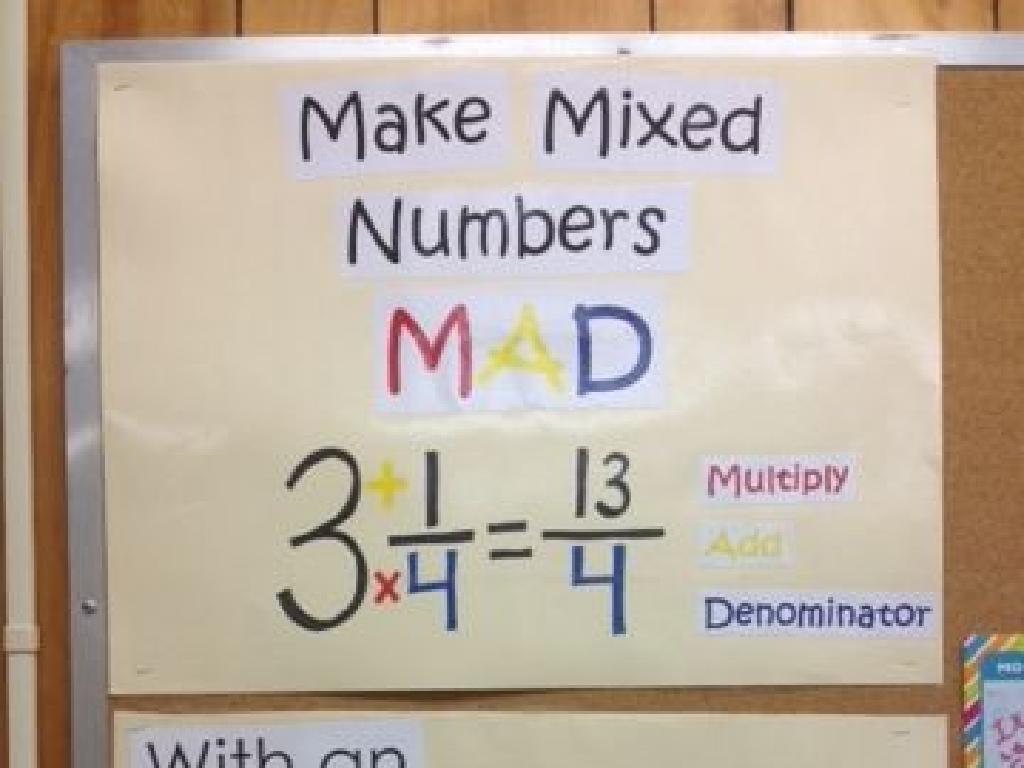Identify The Irregular Past Tense I
Subject: Language arts
Grade: Third grade
Topic: Verb Tense
Please LOG IN to download the presentation. Access is available to registered users only.
View More Content
Irregular Past Tense Verbs
– Discover special past tense verbs
– Not all verbs end with -ed in the past tense
– Learn correct use of irregular verbs
– We say ‘ran’ not ‘runned’, and ‘sat’ not ‘sitted’
– Examples of irregular verbs
– ‘Go’ becomes ‘went’, ‘buy’ becomes ‘bought’
– Practice forming past tense
– We’ll do fun activities to practice these verbs
|
This slide introduces the concept of irregular past tense verbs to third-grade students. Begin by explaining that while many verbs in the past tense end with -ed, some verbs do not follow this rule and they are called irregular verbs. Provide clear examples, contrasting regular past tense verbs with irregular ones. Use common verbs that students are likely to know and use in their daily language. Engage the class with interactive activities such as matching games or fill-in-the-blank sentences to reinforce their understanding and help them practice forming the past tense of irregular verbs.
Understanding Verbs: Action Words
– Verbs show action or state
– Examples: run, jump, eat
– Actions like ‘run’ or ‘jump’
– Think and play are verbs too
– ‘Think’ and ‘play’ show mental action and fun activities
– Irregular verbs change form
– Past tense can be different, like ‘ran’ or ‘ate’
|
This slide introduces the concept of verbs to third-grade students. Begin by explaining that verbs are words that describe what someone or something is doing or feeling. Provide relatable examples such as ‘run’, ‘jump’, ‘eat’, ‘think’, and ‘play’ to illustrate the point. Emphasize that while most verbs add ‘-ed’ to form the past tense, some verbs do not follow this rule and change into a completely different word, which are called irregular verbs. Encourage students to think of actions they do every day as examples of verbs. Later, we will explore irregular verbs and how their past tense forms are different.
Regular vs. Irregular Verbs
– Regular verbs add ‘-ed’
– Irregular verbs change differently
– Examples: ‘run’ becomes ‘ran’
– ‘Eat’ turns to ‘ate’, ‘go’ turns to ‘went’
– Practice: Find irregular past tense
– Look in a book for verbs that don t add ‘-ed’ for past tense
|
This slide introduces the concept of regular and irregular verbs to third-grade students. Regular verbs follow a simple rule for turning into the past tense: by adding ‘-ed’ to the end of the base form. However, irregular verbs don’t follow this pattern and change in various ways, which can be challenging for students to remember. Provide clear examples of irregular verbs and their past tense forms, such as ‘run’ to ‘ran’ and ‘eat’ to ‘ate’. Encourage students to find and practice more examples in their reading materials. This will help them recognize and memorize irregular verbs, an essential skill for developing their grammar and writing abilities.
Irregular Past Tense Verbs
– Irregular verbs don’t follow rules
– ‘Go’ changes to ‘went’
– Unlike ‘walk’ to ‘walked’, ‘go’ becomes ‘went’
– ‘Buy’ changes to ‘bought’
– Instead of ‘buyed’, we say ‘bought’
– Practice makes perfect!
– Keep reading and writing to learn more
|
This slide introduces the concept of irregular past tense verbs to third-grade students. Emphasize that these verbs do not follow the regular pattern of simply adding ‘-ed’ to the base form. Provide clear examples with ‘go’ turning into ‘went’ and ‘buy’ into ‘bought’, showing the change in spelling and pronunciation. Encourage students to practice by reading stories and identifying irregular verbs, as well as using them in their writing. The goal is for students to recognize and use irregular past tense verbs correctly through repetition and exposure.
Irregular Past Tense Verbs
– ‘Eat’ changes to ‘ate’
– Example: I eat an apple everyday, but yesterday I ate an orange.
– ‘Sing’ changes to ‘sang’
– Example: She sings beautifully, but last night she sang even better.
– ‘Have’ changes to ‘had’
– Example: We have a pet cat, but we had a dog last year.
– Discover more examples
|
This slide is aimed at helping third-grade students understand and identify irregular past tense verbs, which do not follow the regular ‘-ed’ ending pattern. Start by explaining that irregular verbs change in unique ways from present to past tense. Use the examples provided to show these changes. Encourage students to think of sentences using both the present and past tense of the verbs to contextualize the irregular forms. After discussing the examples, engage the class by asking them to come up with additional irregular verbs and use them in sentences. This will help solidify their understanding of the concept.
Practice Time: Irregular Past Tense Verbs
– Understand irregular past tense
– Fill in the blanks exercise
– Choose the right word to complete sentences
– Use correct irregular verbs
– Words don t follow regular rules, e.g., ‘go’ becomes ‘went’
– Share answers with the class
|
This slide is for a class activity focused on practicing irregular past tense verbs. Students will be given sentences with missing verbs and will need to fill in the blanks with the correct form of the irregular past tense verbs. This exercise helps reinforce their understanding that irregular verbs do not follow the standard ‘-ed’ ending pattern. For example, ‘go’ becomes ‘went’ and ‘eat’ becomes ‘ate’. After completing the exercise, students will be encouraged to share their answers with the class to facilitate peer learning. As a teacher, prepare a list of sentences with blanks for the verbs, and ensure you have a mix of commonly used irregular verbs. Be ready to assist students who may struggle and provide positive feedback to encourage participation.
Let’s Play a Game with Irregular Past Tense Verbs!
– We’re playing a verb game
– Land on a square in the game
– Change the verb to past tense
– For ‘go’, say ‘went’; for ‘eat’, say ‘ate’
– Have fun learning!
|
This slide introduces a fun and interactive game to help third graders learn about irregular past tense verbs. The game involves a board where students move pieces and land on squares that prompt them to convert present tense verbs into their irregular past tense forms. For example, if a student lands on a square with the verb ‘run’, they should say ‘ran’. This activity is designed to reinforce their understanding of verb tenses in an engaging way. As a teacher, prepare a list of common irregular verbs and create a simple game board with squares. Each square should have a verb in its present tense. Provide clear instructions and examples before starting the game, and be ready to assist if students struggle with any verbs. Encourage students to help each other and to use context or sentences to make the learning process more dynamic.
Class Activity: Verb Charades
– Let’s play Verb Charades!
– Act out a verb without speaking
– Classmates guess the verb and its past tense
– Learn irregular past tense forms
– Examples: ‘go’ becomes ‘went’, ‘buy’ becomes ‘bought’
|
This interactive activity is designed to help students learn and remember irregular past tense verbs through a fun game of charades. Each student will take turns acting out a verb without using any words, while the rest of the class tries to guess the verb being acted out. Once the verb is guessed, the student acting it out or the classmates will then say the irregular past tense form of that verb. This exercise encourages active participation, reinforces the concept of irregular verbs, and enhances memory retention through physical activity and engagement. Prepare a list of common irregular verbs for the students to act out. Make sure to explain that unlike regular verbs, irregular verbs do not follow a set pattern when changing to past tense. Provide examples and encourage students to use context to figure out the past tense forms.
Mastering Irregular Past Tense Verbs
– Congratulations on learning!
– Irregular verbs don’t follow rules
– Regular verbs end in ‘ed’, irregulars do not. For example, ‘go’ becomes ‘went’.
– Practice is key to mastery
– You’re on your way to becoming a pro!
|
This slide is meant to congratulate the students on their hard work learning about irregular past tense verbs. It’s important to remind them that unlike regular verbs, irregular verbs do not follow a set pattern and can change in unpredictable ways. Encourage them to practice regularly by reading, writing, and speaking using the irregular verbs they’ve learned. This will help solidify their understanding and ensure they become proficient in using irregular past tense verbs. You can suggest fun activities like verb treasure hunts or storytelling sessions to make practice enjoyable.






